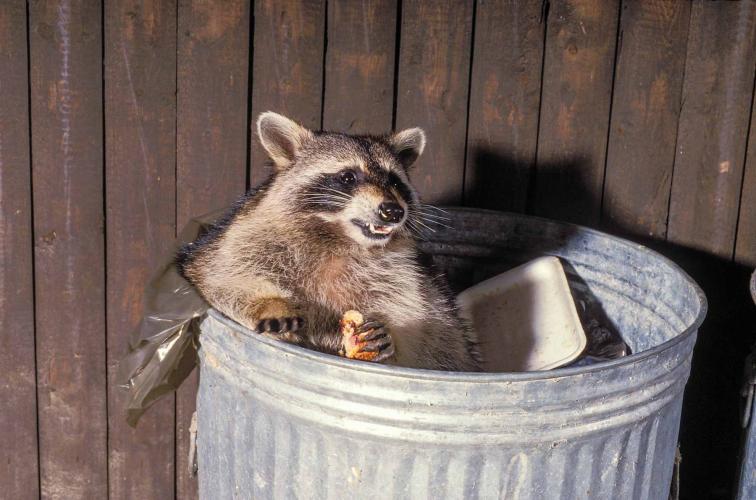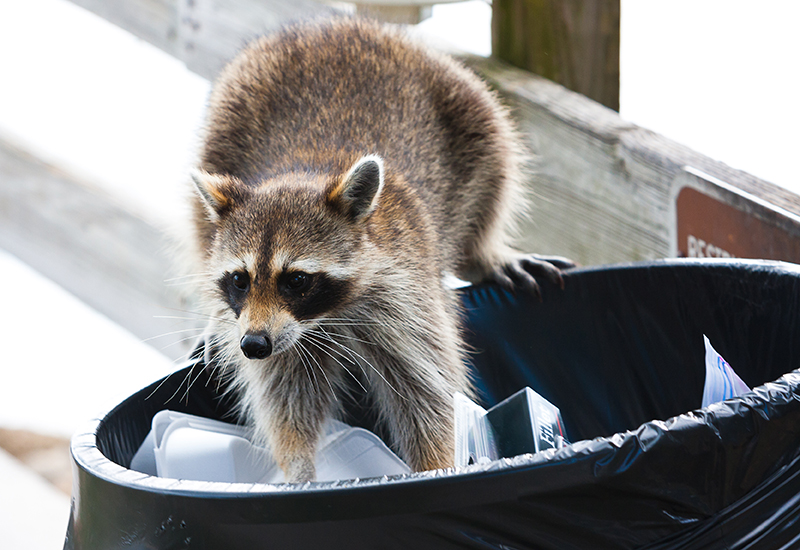:max_bytes(150000):strip_icc()/raccoons-in-trash-dahrs-GettyImages-1047163322-1e51a12eac4c46a2a7baa256347f87e9.jpg)
Introduction
Raccoons are fascinating creatures known for their mischievous behavior and dexterous paws. These small mammals are native to North America and are often found in urban areas, including residential neighborhoods. One common sight is a raccoon rummaging through trash cans in search of food. In this article, we will explore the reasons behind this behavior and how to handle encounters with raccoons in trash cans.

Why do Raccoons Search Trash Cans?
Raccoons are opportunistic feeders and have adapted well to living alongside humans. Trash cans provide an abundant source of food for them. These intelligent creatures have a keen sense of smell and can easily detect the scent of leftover food from a distance. They are also attracted to the abundance of food waste in residential areas, making trash cans a prime target for their foraging activities.

The Risks of Raccoons in Trash Cans
While raccoons may seem harmless, their presence in trash cans can pose several risks. Firstly, they can create a mess by scattering garbage all around. This not only creates an unsightly sight but can also attract other pests such as rats and insects. Moreover, raccoons can carry diseases and parasites that can be transmitted to humans and pets. Therefore, it is important to address the issue of raccoons in trash cans promptly.

Preventing Raccoons from Getting into Trash Cans
There are several measures you can take to prevent raccoons from accessing your trash cans. Firstly, ensure that your trash cans have secure lids that cannot be easily opened by raccoons. You can use bungee cords or heavy rocks to secure the lid if necessary. It is also advisable to store your trash cans in a shed or garage until the day of garbage collection, as this reduces the chances of raccoons getting to them. Additionally, avoid leaving food waste or pet food outside, as these can attract raccoons.

What to Do If You Encounter a Raccoon in a Trash Can
If you come across a raccoon in your trash can, it is important to approach the situation with caution. Raccoons may become aggressive if they feel threatened or cornered. Therefore, it is best to keep your distance and avoid direct contact. Loud noises or clapping your hands can often scare them away. If the raccoon refuses to leave, it is advisable to contact a professional wildlife removal service to handle the situation safely and humanely.

Conclusion
Raccoons in trash cans are a common occurrence in urban areas. While they may be fascinating to observe, it is important to take necessary precautions to prevent them from accessing your trash cans. By securing lids, storing trash cans properly, and eliminating food sources, you can reduce the chances of encountering raccoons in your trash. If a raccoon does find its way into your trash can, it is best to seek professional assistance to ensure a safe resolution.